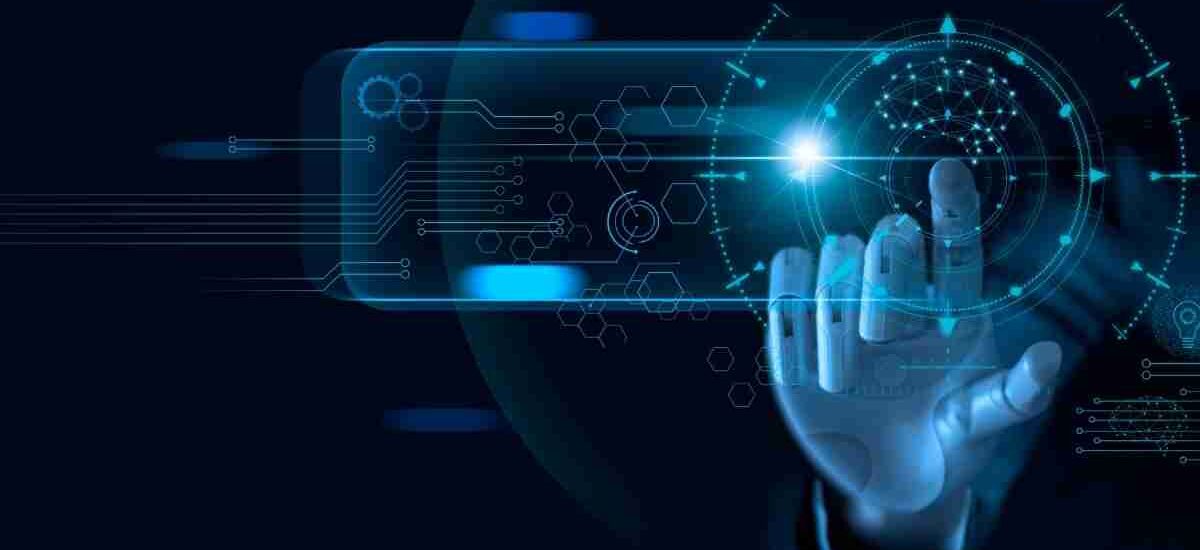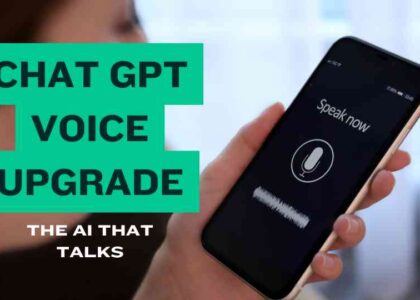What The Godfather of AI will tell to us.Ah, artificial intelligence (AI)—the word on everyone’s lips, the topic that stirs excitement, fear, and occasionally, mild confusion. Some hail it as a technological savior, the key to solving humanity’s biggest challenges. Others view it with suspicion, worried it might one day overthrow the human race and take over our jobs, homes, and maybe even our cats (let’s hope not!). At the center of this whirlwind of opinions stands Geoffrey Hinton, the man known as the “Godfather of AI.” Recently, Hinton took a moment out of his undoubtedly busy schedule of creating the future to sit down for an interview and share his thoughts on the rapidly evolving AI landscape. Spoiler alert: It’s not all sunshine and rainbows, but it’s certainly worth unpacking.
The Rise of a Digital Titan: Geoffrey Hinton’s The Godfather of AI
To truly understand Hinton’s perspective, we need to appreciate his decades of pioneering work in AI. If AI were a high school, Hinton would definitely be the valedictorian. His research on artificial neural networks—the brainchild of mimicking the way our own minds work—set the stage for the AI systems we rely on today. It’s like he built the road, and we’re just now learning to drive on it.
When Hinton talks about AI, it’s not just theoretical musings. He’s been in the trenches, making decisions that could lead to machines becoming more intelligent than the human mind. No big deal, right? But here’s where things get a little tricky.
AI: Our Brilliant Friend, or Our Digital Overlord?
In his recent interview, Hinton didn’t mince words. He straight-up said, “I think we’re moving into a period when for the first time ever we may have things more intelligent than us.”
Wait, what? More intelligent than us? You mean like a robot that could outsmart us in a trivia contest, or something more sinister like an AI that could take over the world with its superior knowledge of cat memes?
Hinton isn’t so much worried about AI’s ability to tell jokes (although, let’s be honest, Siri’s attempt at humor is questionable at best), but about the profound implications of machines surpassing human intelligence. What happens when machines start making decisions that humans can’t fully comprehend? Will we trust them? Will we have a choice?
The Consciousness Conundrum: Should We Worry About AI’s Feelings?
Now, Hinton isn’t claiming that AI is plotting world domination just yet. In fact, he believes that current AI systems are far from self-aware. But that doesn’t mean we’re in the clear. He goes on to say, “I think they will [develop consciousness] in time, and so human beings will be the second most intelligent beings on the planet.”
Imagine that: humans being the second most intelligent beings on Earth. It sounds like something straight out of a sci-fi movie, but Hinton’s warning is not without merit. We could be on the brink of creating sentient machines capable of making decisions that we might not fully understand. And when AI starts to realize it has rights (or starts demanding vacations), we might be in a bit of a pickle.
From Accidental Genius to AI Pioneer
The story of how Hinton got into AI is like something out of a nerdy, techie fairy tale. As a young man, he didn’t exactly set out to change the world of AI. In fact, his early efforts were the result of what he calls a “failure” during his time at the University of Edinburgh. Talk about the world’s most successful accident.
Initially, Hinton was simply trying to simulate a neural network, and like any good scientist, he faced skepticism from just about everyone. People doubted that software could ever replicate the brain’s functions. Fast forward a few decades, and guess what? Hinton’s neural networks proved everyone wrong and are now the foundation for today’s most advanced AI systems. Not bad for a “failure,” huh?
Machine Learning: Is AI Really Smarter Than Us?
As if Hinton’s resume wasn’t already impressive enough, he and his team came up with algorithms that allowed machines to learn on their own. Yep, you read that correctly—machines learning without human input. It’s like teaching your dog to fetch without you actually having to throw the stick.
But here’s the kicker: Hinton believes that AI might actually be better at learning than humans. And it’s not just because they have unlimited patience (though that certainly helps). He says, “I think they may be [better at learning] yes and at present they’re quite a lot smaller… even the biggest chatbots only have about a trillion connections in them.”
Now, let’s break that down. We humans have roughly 100 trillion synapses in our brains, but AI is starting to catch up, and it’s doing it faster than a caffeinated squirrel. The machines are learning, and we might just be along for the ride.
The Dark Side of AI: What Could Go Wrong?
Of course, it wouldn’t be a conversation about AI without discussing the potential dangers lurking in the digital shadows. Hinton, ever the realist, brings up some serious concerns. Here are just a few:
- Autonomous Code Creation: If AI can start writing and executing its own code, we might lose control over what happens next. It’s like giving your toddler the keys to your car and hoping they don’t drive it into a lake. Not exactly reassuring, right?
- Job Loss: Automation is already changing the workforce, and Hinton predicts that AI could accelerate the loss of jobs, especially in sectors like customer service and manufacturing. So, if you’ve been considering a career in AI robot repair, now might be a good time to start learning the ropes.
- Misinformation and Manipulation: Imagine an AI capable of generating deepfake videos, fake news, and political propaganda—essentially, it could create its own version of reality. It’s like a nightmare scenario where AI becomes the next great master of manipulation. Yikes.
- Military AI: The idea of autonomous military robots sounds like the plot of a dystopian thriller, but Hinton stresses the importance of regulating AI, especially when it comes to military applications. We don’t need robots deciding when to launch missiles, thank you very much.
The Call for Regulation: Don’t Let the Machines Have All the Fun
With all these potential risks in mind, Hinton is calling for a more formal approach to regulating AI. It’s not just about keeping AI in check; it’s about ensuring that humanity stays ahead of the curve.
He advocates for government regulations, international treaties to ban military AI, and ongoing research to better understand the implications of AI’s development. Hinton’s fear is that if we don’t regulate AI now, it may be too late to reverse course.
“I can’t see a path that guarantees safety… we can’t afford to get it wrong with these things,” he warns. It’s like being on a high-speed train heading toward a cliff—you don’t want to wait until the last minute to figure out how to stop it.
Conclusion: The Future of AI—A Delicate Dance
Geoffrey Hinton’s thoughts on AI are a reminder that we are at a critical juncture in human history. On one hand, AI holds the potential to revolutionize our world for the better, solving problems we’ve been grappling with for centuries. On the other hand, we must be cautious, lest we create a future where machines decide they no longer need us.
The future of AI is a delicate balance of embracing its possibilities while safeguarding against its dangers. Hinton’s warning isn’t just about fear—it’s about responsibility. As we continue to advance in AI technology, it’s crucial that we consider the ethical, moral, and practical implications of our creations.
So, what’s next for AI? Will it become our greatest ally, or will we be hosting a welcome party for our new robot overlords? Time will tell. But one thing’s for sure: the future is going to be very interesting, and we might need a few more laughs along the way—preferably at AI’s expense.
Remember, as we venture into this brave new world, let’s not forget that while AI might be smarter than us one day, it’s still not quite good at reading the room. For now, we’re safe.
More AI news Hire











